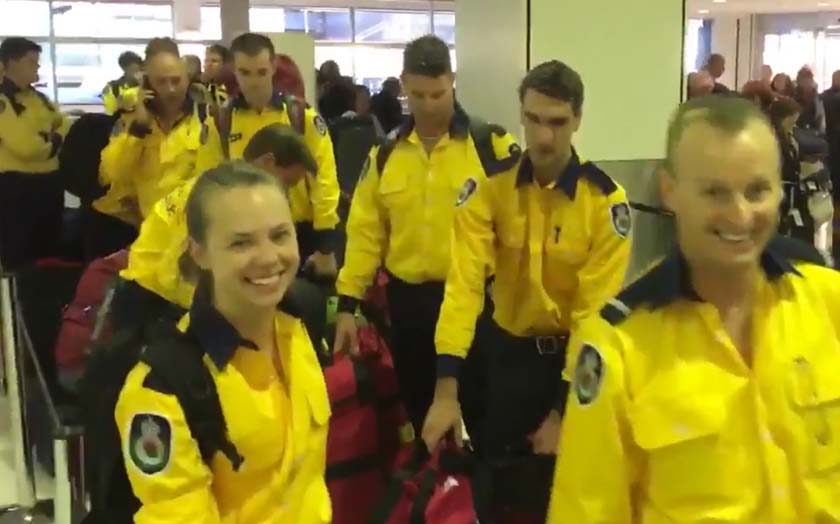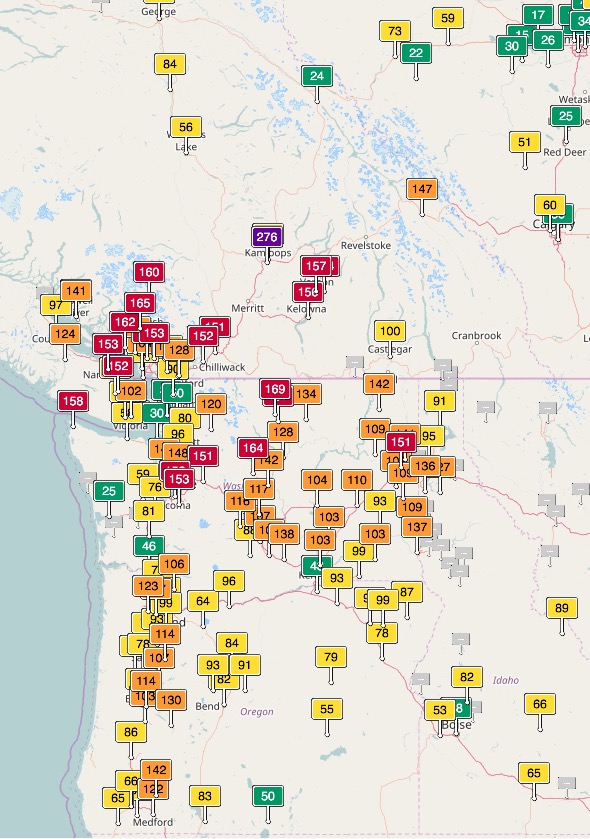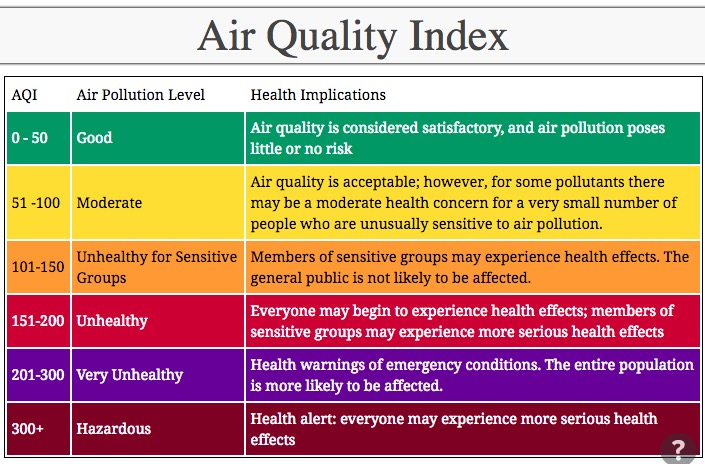Above: Map showing heat detected by a satellite in southern British Columbia at 2:51 a.m. MDT August 9, 2017.
(Updated at 5 p.m. MDT August 9, 2017)
The wildfire situation in British Columbia has not gotten any better in the last several days. Currently there are 128 active wildfires in the province, with four of them being larger than 50,000 hectares (123,000 acres). The largest, the Hanceville Riske Creek Fire, is getting closer to half a million acres each day.
Since April 1, approximately 591,280 hectares (1,461,082 acres) have burned in 900 fires in BC.
- Hanceville Riske Creek, 172,000 hectares (425,000 acres) approximately 60 km southwest of Williams Lake.
- Elephant Hill, 117,000 hectares (289,000 acres), near Ashcroft.
- Tautri Lake, 76,000 hectares (188,000 acres), 80 km northwest of Williams Lake.
- Baezaeko River-Quesnel West, 53,000 hectares (131,000 acres).
More than 400 additional firefighters from Australia, New Zealand, Mexico and the US are expected to arrive in BC this week. Other firefighters from Australia have been in the province for a couple of weeks. More than 100 firefighters arrived from Mexico since Saturday of last week. No resources have been ordered or dispatched to Canada through the United States National Interagency Coordination Center, but the Great Lakes Interstate Forest Fire Compact mobilized a crew to Ontario that is now in British Columbia, and Massachusetts sent personnel across the border. Of course the northwestern one-quarter of the United States is pretty busy with their own fires.


Smoke from wildfires in British Columbia, Washington, Oregon, Idaho, and Montana has created seriously degraded air quality off and on in those areas, at times reaching the “unhealthy” level according to air quality officials.


40 #NSWRFS members will form part of a 100 strong frontline firefighting team heading to #Canada today to assist with #BCfires. pic.twitter.com/jLH6XErcxP
— NSW RFS (@NSWRFS) August 8, 2017
Wind vector map for Elephant Hill fire. Local conditions may vary. From @CWFIS #BCWildfire #Ashcroft #Clinton pic.twitter.com/klEepCGCXL
— Amy Christianson (@ChristiansonAmy) August 9, 2017


The sad thing is, while we will get some shift in wind and rain at some point, the underlying problem remains. Our politicians’ unequivocal determination to push the fossil fuel addiction, and the consequences of such policy: drier winters. warmer summers, more ferocious forest fires. It’s heartbreaking and criminal.